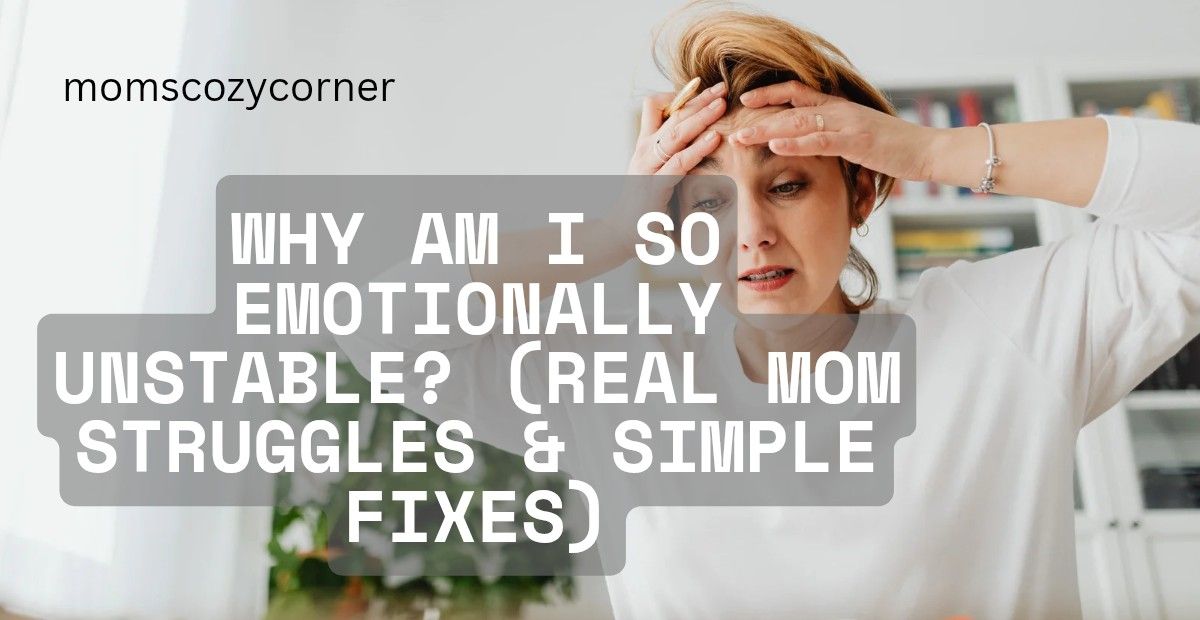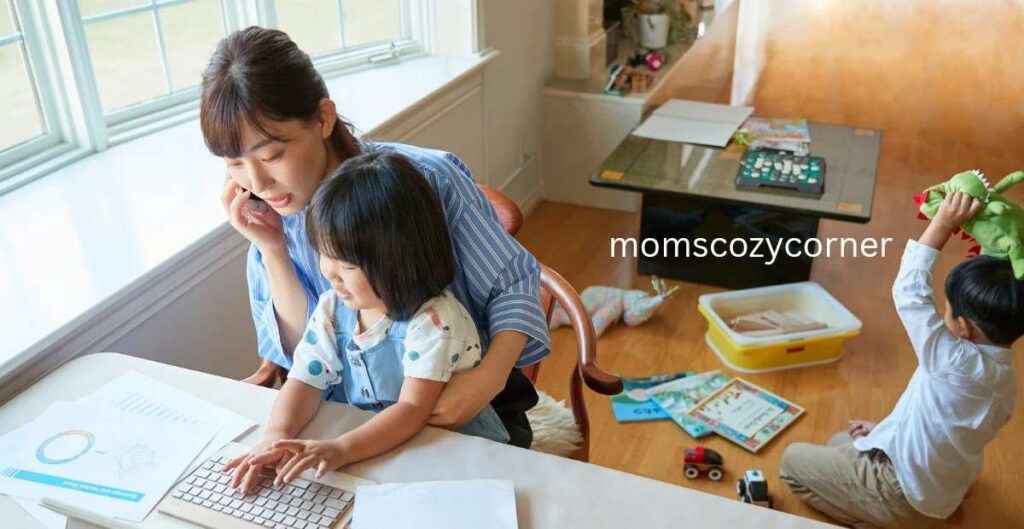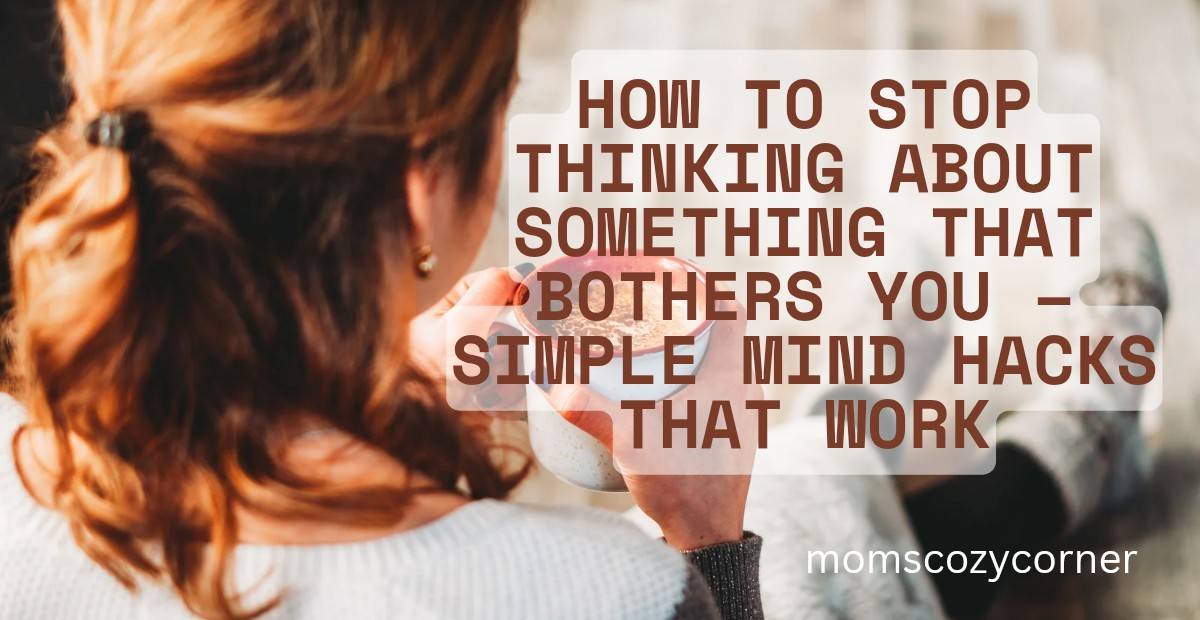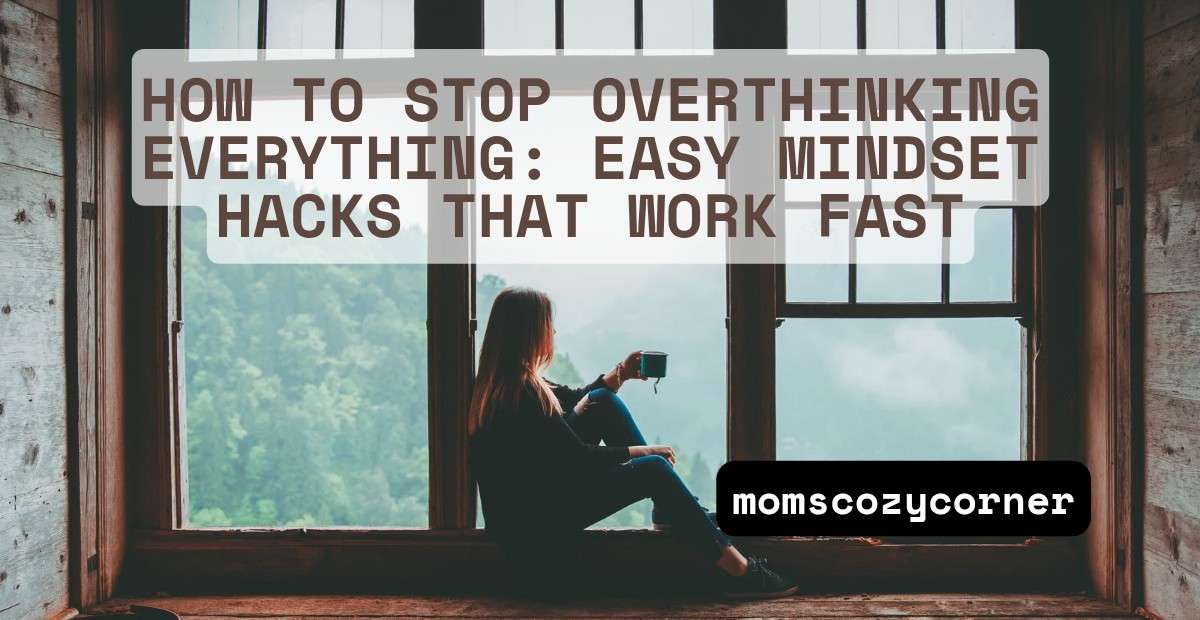Why Am I So Emotionally Unstable? The Surprising Reasons No One Talks About
Introduction
Emotionally unstable—from the word itself, you can guess it means emotions that don’t stay steady. One time, while commuting, I overheard a man talking about how his wife’s moods change so quickly. He said, ‘She goes to bed smiling, wishing me good night. But suddenly, at midnight, she wakes me up to bring up old arguments about money or the kids. It’s like her mood flips without warning, and I can’t predict what’s next.’ That’s exactly what emotional instability feels like—unpredictable, fast, and hard to manage.
The Real Reasons Emotional Stability Feels Out of Reach
Emotional stability often feels out of reach—not only because of motherhood’s stress, but also due to upbringing, life situations, hormonal shifts, and even self-image struggles. When we stop loving ourselves, both our mind and body feel the weight.
Stress and the Mental Load of Motherhood
Motherhood is full of love, but it also brings a heavy mental load. It’s not just about caring for the kids—it’s about carrying the invisible checklist every single day:
- Planning breakfast, lunch, and dinner
- Keeping track of groceries, diapers, and school supplies
- Finding the missing keys or your husband’s glasses
- Remembering doctor’s appointments for the kids
- Juggling big and small decisions for the whole family
This nonstop mental load tires out the brain the same way heavy work exhausts the body. And while moms never regret it—because we’re doing it for the people we love most—it still comes with a cost:
- The brain feels overloaded.
- Stress builds up.
- Emotional regulation gets harder.
In the end, the mental load leads to stress, which makes it harder to regulate emotions—and that’s where emotional instability begins.
Hormonal Shifts and Physical Health
After having a baby, our bodies and minds go through big changes. Hormones shift, moods swing, and energy feels drained. At times, we may even feel emotionally unstable, reacting in ways we never expected. Before motherhood, we might’ve handled things alone, but now we realize we need support—and that’s perfectly okay.
Many moms face:
- Mood swings from hormonal changes
- Exhaustion that feels never-ending
- Weight gain during recovery and feeding
- Body-image worries, even without outside comments
- A stronger need for emotional and physical support
These shifts slowly drain our energy, making it harder to regulate emotions. That’s why hormonal changes often lead to emotional instability.

Past Trauma and Unprocessed Emotions
Sometimes, the reason we feel so up and down today comes from way back. Old hurts—like growing up with divorced parents, being teased with cruel nicknames, or even being bullied in school—don’t just fade. A friend once shared how being laughed at during a race in childhood still makes her avoid sports today.
And it’s not just the past. Unprocessed feelings can build up too. I knew a single mom who always looked strong for her daughter, but deep inside she was exhausted. Since she never let those emotions out, they later showed up as stress and family tension.
- Old memories can sneak into the present.
- Bottled-up feelings often resurface later.
- Ignoring pain doesn’t make it disappear.
And when those old wounds mix with unprocessed emotions, it makes regulating feelings in the present so much harder.
Sleep Deprivation and Burnout
Sleep deprivation isn’t just a newborn phase—it sticks around. I’ve felt it myself. Even years later, I don’t get that deep, uninterrupted sleep anymore. Nights often turn into “catch-up” time.
- Folding clothes once the kids are asleep
- Writing articles when it’s finally quiet
- Prepping worksheets for the next day
The problem? The next morning, I’m groggy. Even the easy stuff feels so heavy. I snap quicker, my energy’s gone, and nothing flows right. No sleep just makes little things feel way too big.
When Everyday Life Feels Like an Emotional Struggle
Some days, being emotionally unstable feels like not wanting to get out of bed. You dread the sun coming up, scared you’ll mess up or hurt someone you love. That’s the weight of daily emotional struggle.
Normal Stress vs. Deeper Emotional Issues
We all deal with stress, right? Like when your kid spills milk, the glass breaks, and you’re stuck cleaning the mess alone. That’s normal stress. It’s frustrating, but you can calm down later and think about how you’ll handle it next time.
But deeper emotional issues feel different. For example, a mom from Texas shared with me how she once trusted a close friend with money. That trust was broken, and it didn’t just hurt her wallet—it shook her marriage, left her sleepless for months, and made her feel emotionally unstable in ways she never expected. That’s not just stress; that’s pain sitting deep inside.
Normal stress is short-term. It pops up when something small happens—like your kid spilling milk or making a mess.
Deeper emotional issues last much longer. They creep into your sleep, your appetite, and even your relationships.
One stress fades fast, but the other hangs around and drains your energy.

Why Moms Often Blame Themselves for Struggling
Moms blame themselves more often than anyone else does. It’s not that it’s really our fault—we just want to give our families the very best. Even when we pour our love and effort into something, like cooking dinner, we still think, “It could’ve been tastier.” One day the dish comes out perfect, the next day not so much, and we end up saying, “I didn’t make it right.” If we’re this hard on ourselves over a meal, no wonder we take the blame for bigger things too. A lot of this comes from what we’ve seen and who we compare ourselves to.
- We watched our moms do the same.
- We compare ourselves with friends and moms online.
Being ‘Too Emotional’—What’s Normal and What’s Not
Ever catch yourself blowing up over something small, then wonder, “Am I even normal?” I’ve been there—like the day my kids pulled every dress off the rack and I lost it. Moments like that make us question what’s “too emotional.”
Sensitivity vs. Instability
Some moms are just sensitive by nature. Like, you hear about an earthquake on the news or watch a sad movie, and it stays with you for days. You cry, and you feel for people you’ve never even met. That’s sensitivity—it’s about having a soft heart.
Now, instability is different. A friend of mine once blew up at her husband for leaving a wet towel on the bed. Instead of just saying, “Hey, I told you before,” it turned into yelling, digging up old fights, and three days of silence. That’s not just sensitivity—that’s being emotionally unstable and struggling to manage emotions.
If you’ve ever wondered why you feel things so deeply in the first place, I’ve written more about that here: Why Do I Feel Things So Deeply?
Sensitivity: We get hurt even by small comments, but that same sensitivity makes us quick to show empathy and really understand what others are going through.
Instability: You get triggered by small things, fights blow up fast, and even when you regret it, it’s hard to calm down or end the fight. It feels like your emotions are all over the place.
Why Sensitivity Can Be a Hidden Strength
You know, a lot of people think being sensitive is a weakness, but honestly, it’s such a hidden strength—especially for moms. When you’re sensitive, you naturally pick up on things others might miss. You can sense the mood in the room, feel when the air is tense or calm, and notice those tiny details that matter in relationships. That’s not weakness—it’s wisdom wrapped in emotion.
- You read people’s feelings without them saying a word.
- You connect the dots quickly and see the bigger picture.
- You bring comfort because you get it.
In family life, that’s pure gold.
Why Do I Have Meltdowns as an Adult?
It may sound surprising, but adults have meltdowns too. For moms, it happens more often than we admit—different from kids, yet just as overwhelming when life feels too much. In those moments, we don’t just feel tired or stressed—we slip into being emotionally unstable, and it shows up in ways we never planned.

Kids’ Meltdowns vs. Adults’ Meltdowns
Okay, let’s be real—meltdowns aren’t just for toddlers in the candy aisle. We adults have our moments too (we just hide them better… most of the time).
Kids’ meltdowns usually happen because:
- They can’t quite say what they want (hello, communication gap!).
- Sudden rejection—like when you say no to candy, toys, or “just five more minutes in the bathtub.”
- They simply don’t have the brain development yet to regulate those big feelings.
- Hunger or tiredness hits, and boom—game over.
Adults’ meltdowns? Oh, we’ve got our own list:
- Stress piling up—like financial worries that just won’t quit.
- Physical pain—ever stub your toe on the corner of the bed and scream like a kid? Yep, that’s us.
- Emotional pain or loss that feels too heavy to carry.
- Feeling ignored or unseen—yes, even moms need to feel heard.
- Future worries—the “what ifs” that sneak up at night and spiral into stress.
At the end of the day, kids cry it out and move on. We adults? We bottle it up, push through, and sometimes explode in ways that surprise even us.
Why Moms Experience Meltdowns More Often
Honestly, we moms hit meltdowns more often than anyone thinks. It’s not because we’re weak; it’s just because life piles up, we don’t always get a break, and sometimes that leaves us emotionally unstable in ways we don’t even notice until it all comes out.
1. Most days, we don’t even eat on time. We’re so busy feeding everyone else that our stomach runs empty—and yeah, hunger makes us snap fast.
2. Chores, kids’ schoolwork, bills, remembering deadlines… It all keeps spinning in our head; no wonder we explode sometimes.
3. The noise at home? Oh my gosh. Kids crying, tantrums, everyone talking at once—and stepping on toys? That alone can make you yell.
4. Sleep… or actually, the lack of it. If you notice, the days you don’t sleep enough are the days you lose it the fastest.
5. Migraines or random body pain just make it worse. I got them after delivery, and trust me, they drain your patience real quick.
6. Money worries—paying bills, saving, planning for the kids’ future—it’s like a weight sitting on your chest all day.
7. And honestly, even when someone hurts us emotionally, we keep carrying it around. At some point, it just bursts out.
It’s not drama; it’s just too many things hitting at once.

Simple Ways to Regain Control of Your Emotions
Getting your emotions back on track doesn’t have to be complicated. There are lots of ideas out there, but I’ll share what actually works for me. Whenever I feel emotionally unstable, these little practices help me calm down—and maybe they’ll help you too.
Mirror talk or voice recording
Sometimes after I shout at my kids, I feel awful. I stand in front of the mirror and explain the situation to myself—like, “They’re just kids, they’re having fun, it’s okay. I can teach them better next time.” No judgment, just understanding. If I don’t have time, I record my voice and listen later. It helps me process what happened and feel calmer.
Stay calm in the moment
I noticed how my husband would stay calm when I got upset. At first, I thought he wasn’t communicating, but later I realized that staying calm prevents the situation from getting worse. I started using the same approach—it’s not perfect, but it helps a lot.
Talk to someone you trust
Share your feelings with someone who listens without judging or trying to fix it. Just being heard can make a huge difference.
Find your triggers
Notice what really sets you off—stepping on toys, messes, or lost items—and find ways to prevent it. Playpens, organizing spots, or setting rules can save your sanity.
Do what you love
Mama, don’t forget yourself. Dance around with the kids, pull out that embroidery hoop, or try a new skill you’ve been curious about. These little joy-filled breaks recharge you and make regulating emotions so much easier.
Balanced meals and gentle movement
Keeping an 80/20 healthy-to-treat ratio helps me feel better. Simple walks or dancing with your kids are my favorite ways to release stress and feel refreshed.
These simple habits might not fix everything instantly, but they help you feel more in control and less drained.
Conclusion
Emotional instability isn’t something we can’t handle—it’s just a part of life, and there are ways to work through it. The first step is recognizing when we’re feeling emotionally unstable and being honest with ourselves. It’s okay to admit that sometimes we lose our calm or get overwhelmed—what matters is what we do next.
Life as a mom is full: spilled milk, kids’ tantrums, financial stress, relationship bumps, and worrying about the future. None of that is going away anytime soon. But how we respond makes all the difference. When we learn to regulate our emotions, even small things feel easier, and bigger challenges become more manageable.
Try what works for you—stand in front of the mirror, talk with someone you trust, or just take a moment to reset. If something in this article helps you, that’s wonderful. And if you’ve found your own ways to stay calm, share them in the comments. Your experience could help another mom who’s struggling.
Also, if you feel that some of your friends might need this article, share it with them. Thank you for spending time here—writing this, sharing my journey, and connecting with moms like you keeps me motivated, and I hope it encourages you to take small steps toward emotional balance too.





